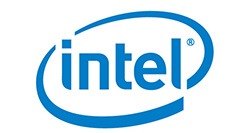Registration to the event is required. please register here.
Dr. Elad Yom-Tov, Microsoft Research
Title: Using internet data to improve health and medicine
Abstract: The majority of Internet users turn to the web for information when they have a medical concern. The data generated while users seek such information, and more broadly when they browse the Internet for work and pleasure, represent a potential boon for medical research. During the past decade these data have proven valuable for research when most patient activity happens online, where internet data provides a more sensitive indicator than that attainable from traditional sources, and where reports from people suffer from significant reporting bias. In my talk I will show examples of recent uses of Internet data to improve health, including the use of Internet data to evaluate the success of influenza vaccination campaigns, applications of minimal interventions to assist in the treatment of people who suffer from anorexia, and early detection of serious medical conditions.
Prof. Amiram Goldblum, Molecular Modeling and Drug Discovery Lab, Institute for Drug Research, Faculty of Medicine, Hebrew University of Jerusalem
Title: Discovering sets of good solutions to extremely complex combinatorial problems: applications to drug discoveries
Abstract: I will present an algorithm that we developed to solve problems in Medicinal Chemistry: first, to understand Protein Structure and conformations, then to interactions of small molecules ("drug candidates") by docking them to proteins, and to small molecules' properties. More recently we apply this algorithm to the discovery of bioactive molecules that are sent for evaluation to experimental ("wet lab") partners and advance to animal studies ("preclinical") in some cases. We predict in silico the activity of molecules for treating diseases, and our only confirmation is the in vitro or in vivo experiments.
The algorithm is adapted to solve problems with very many variables, each having very many values, variables should interact with each other to a certain extent, and we should have a "scoring function" to evaluate each and every sample of variable values. Assume that we have 100 variables and each has a 100 values, we are dealing with a problem of 100100 possible states which no combination of computers can solve. The algorithm called "Iterative Stochastic Elimination" (ISE) has no equal today in successful discovery of bioactive molecules and is different than any other algorithm known to us. It cannot guarantee finding the best ("global") optimum, but it finds sets of good solutions to such complex problems.
I will show how we reduce the number of states in iterations to a manageable number and present our main application today – to the discovery of novel drugs.


